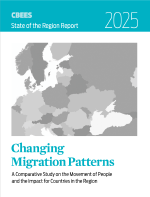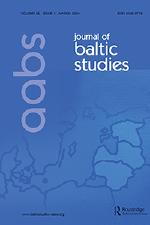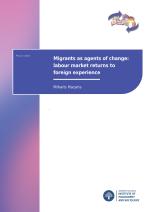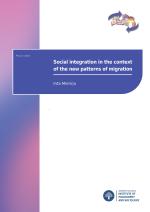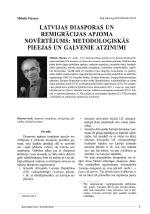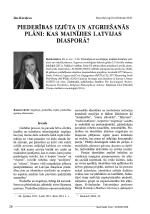Leading migration researchers — Inta Mieriņa, Russell King, and Monika Szulecka, — open the 83rd Scientific Conference of the University of Latvia. Watch the live stream recording.
News
Find the latest updates on migration research in Latvia and beyond
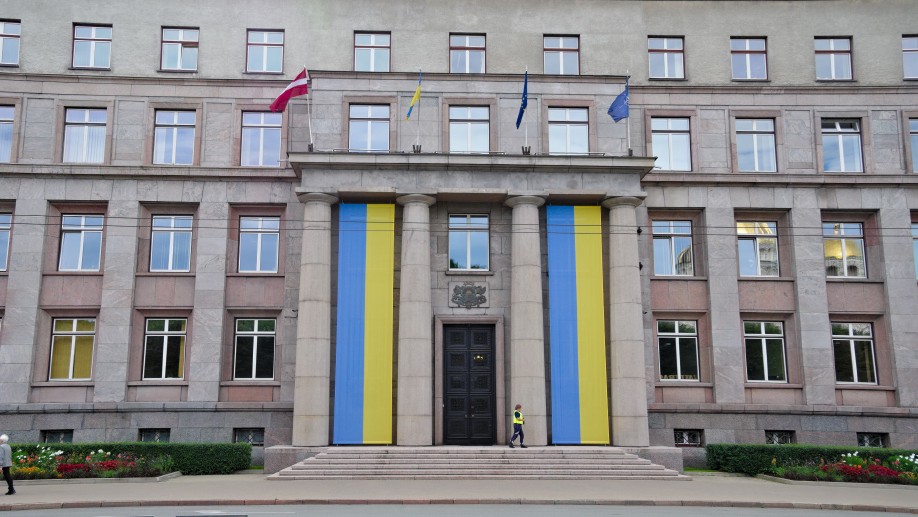
Latvia’s welcoming strategy for ukrainians fleeing war
In the discussion on the reception of Ukrainian refugees in the Baltic-Nordic region countries, Latvia’s policy appears to be solid and consistent. In this blog, HROMADA member Oksana Žabko explains details of Latvia’s policy applied.
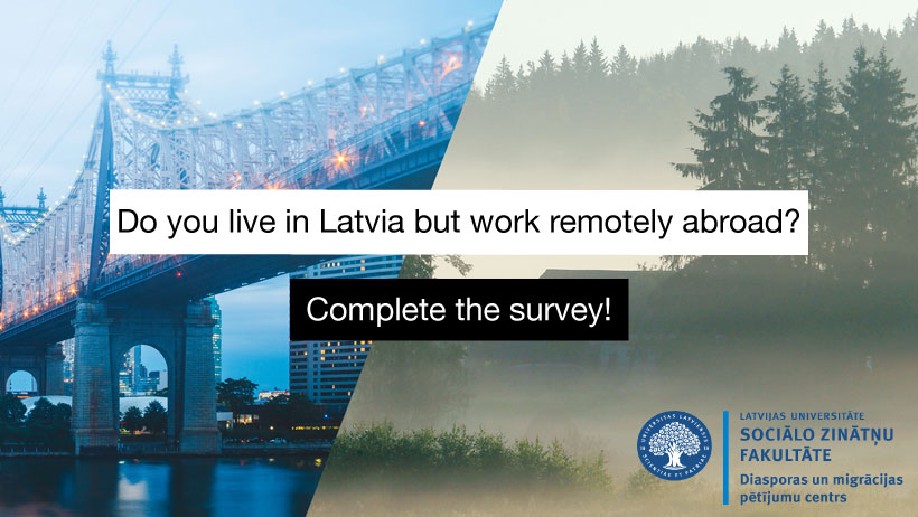
Survey launched to study remote working among Latvians living abroad and return migrants
Restrictions caused by the pandemic have sped up digitalisation processes worldwide and have led to companies and institutions wholly or partly shifting to remote working. Migration researchers at the University of Latvia launched a study with the aim to identify incentives that the government can utilise for Latvia to become a choice for remote working for members of the diaspora and return migrants, as well as to evaluate the main obstacles and necessary adjustments that need to be made to taxation, social support, labour market regulation and in other areas.
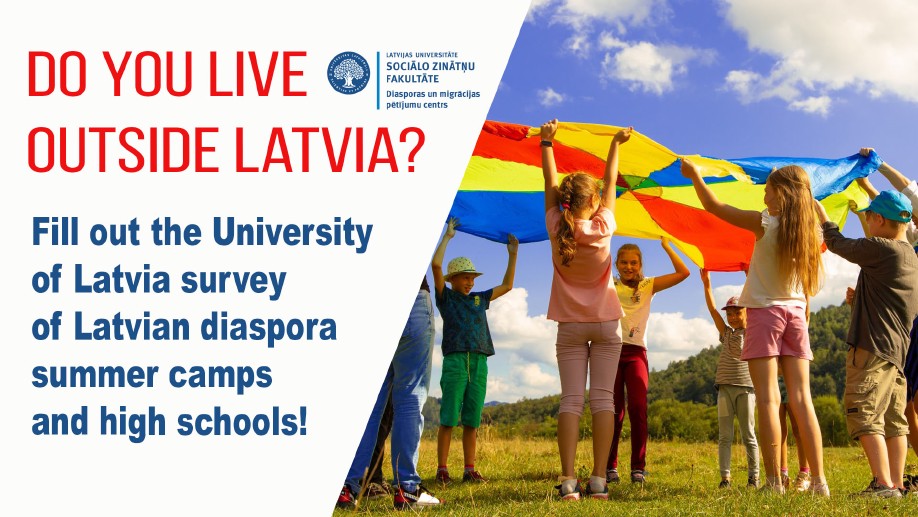
University of Latvia survey provides opportunity to express views on diaspora camps and summer high schools for those living outside Latvia
Youth who are 16–30 years old, as well as parents whose children have participated or could possibly participate in camps and summer high schools for diaspora children and youth are invited to fill out the survey.

Seminar: Educational reintegration and the psychosocial wellbeing of returnee children

University of Latvia launches a study on travel experiences of Latvian nationals living abroad
From 7th December 2020 to 7th January 2021 the University of Latvia, in collaboration with the Investment and Development Agency of Latvia (LIAA) is conducting a survey with the aim to identify the travel habits of Latvian nationals and their descendants when travelling to Latvia. The other aim is to analyse usage trends of tourist services before Covid-19 travel restrictions and also during the Covid-19 pandemic.
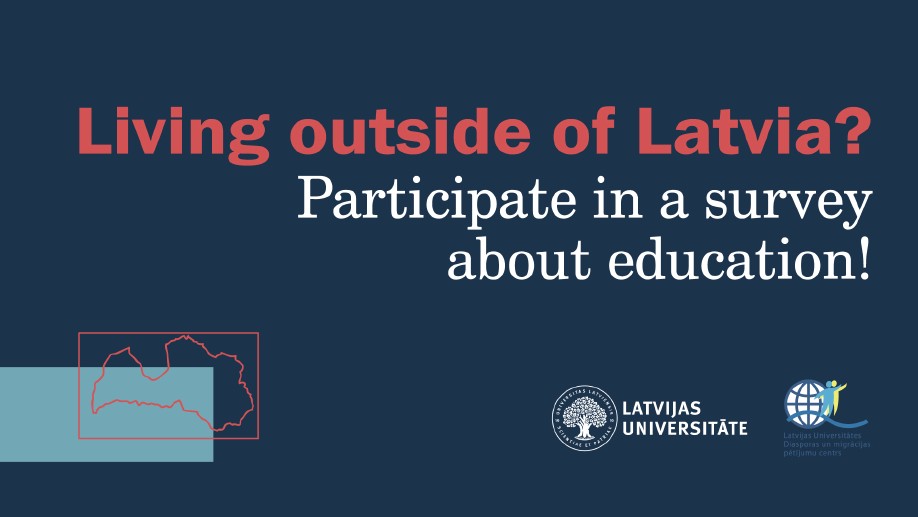
Centre for Diaspora and Migration Research conducts a study on educational choices among Latvians globally
The University of Latvia Centre for Diaspora and Migration Research is carrying out a study on how people who live outside Latvia make decisions about their personal and their children’s education - how they choose where to study, and whether they see Latvia as a potential destination for studies. Researchers invite youth of Latvian descent who live in different countries and are studying or consider doing it, as well as parents of children aged 10 to 25, to participate in this research.
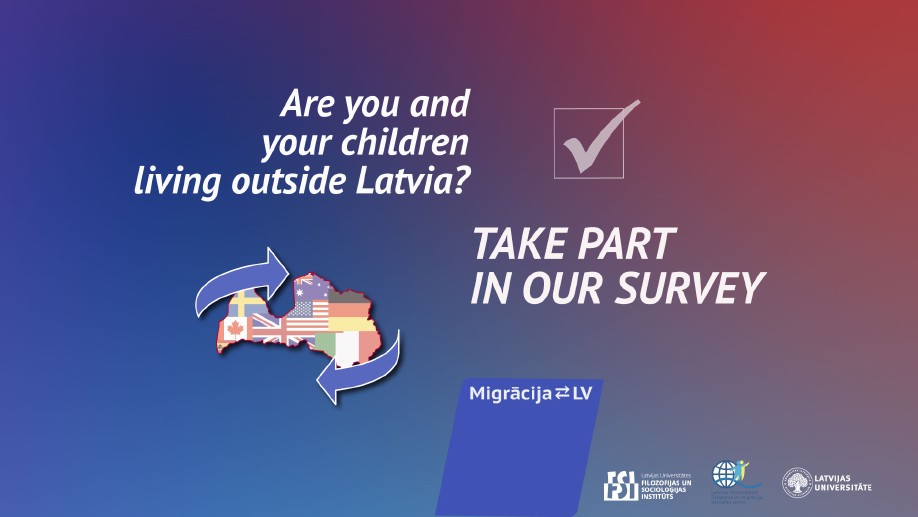
Research underway looking into the language skills and use of children of Latvian nationals
Language skills and usage play a central role in the diaspora to maintain ties with Latvia and strengthen Latvian identity. Studies to date have shown that living abroad, especially in famiies of mixed ethnic origin, children of Latvian nationals assimilate very quickly. With your help researchers hope to establish the attitude of parents to the Latvian language and its use in the family and why and how Latvian language is maintained and strengthened among children.

